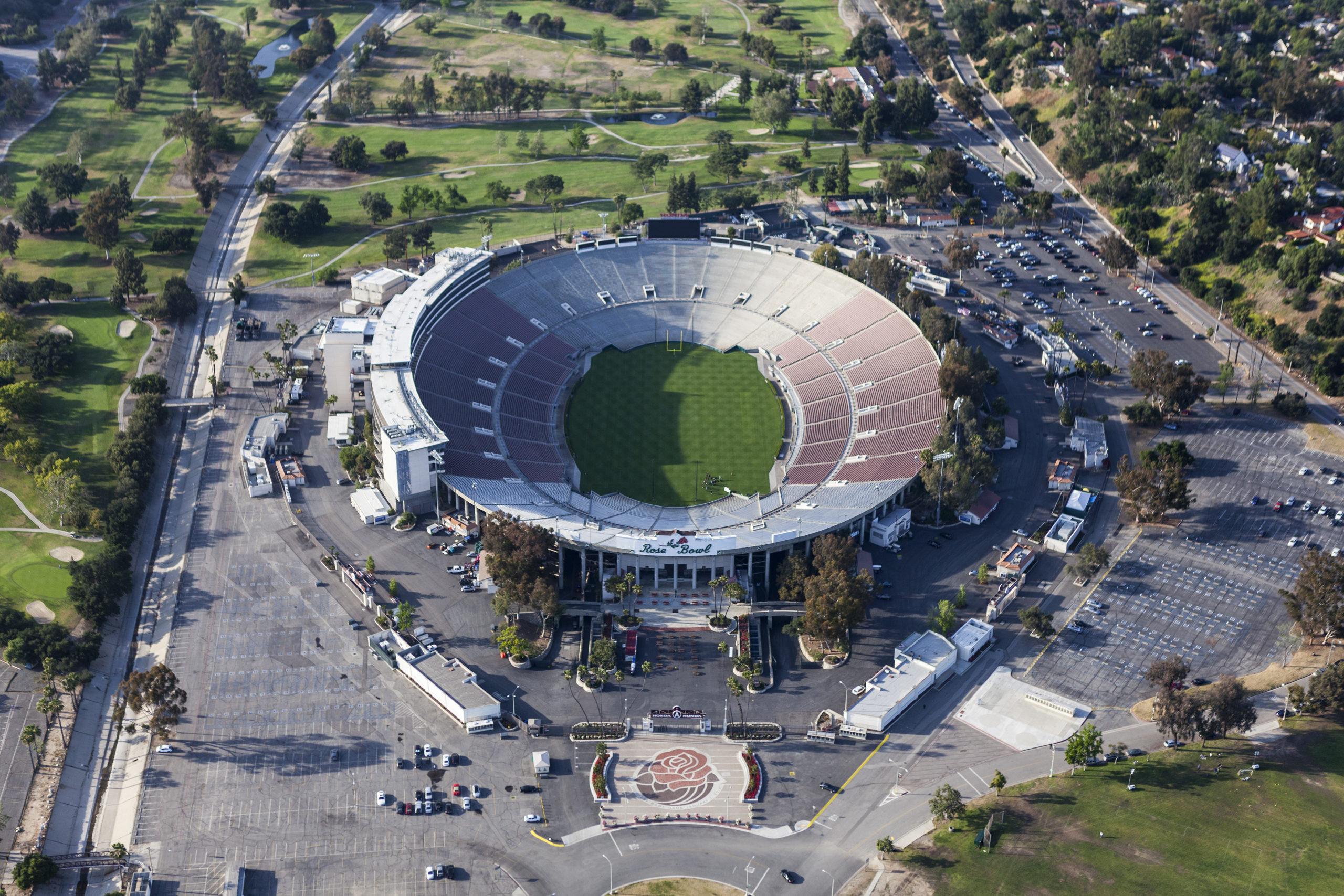
Last week, the Tournament of Roses Association announced they were filing a lawsuit against the city of Pasadena seeking full ownership of the “Rose Bowl” and “Rose Bowl Game” trademarks.
Hoping to declare proprietorship over the nationally recognizable names attached to the annual college football game and stadium which shares its namesake, the Tournament contends “The City of Pasadena’s attempt to assert co-ownership in what are indisputably our trademarks threatens to interfere with our ability to carry out even routine business activities”, according to an official statement from Executive Director/ CEO David Eads, who concluded the non-profit civic organization has “no choice but to get confirmation of our rights by the courts.”
In what has been a relationship for nearly 100 years — since the construction of the Rose Bowl Stadium by the Tournament in 1922 — the announcement came as a surprise not just to residents but to Pasadena’s Mayor, Victor Gordo, as well, who deemed it “unexpected and unfortunate.”

The legal dispute stems from the last-minute decision late last year to relocate the 2021 Rose Bowl Game — traditionally played on New Year’s Day in Pasadena — to the AT&T stadium in Arlington, Texas. This was due to unforeseen complications derived from the COVID-19 pandemic and subsequent safety restrictions administered by the state, which limited in-person attendance for large-scale events. The move was marked as only its second relocation in the game’s 107-year history, the first being in 1942, to Durham, North Carolina, shortly after the 1941 attack on Pearl Harbor.
Although the decisive move was set in motion by the CFP (College Football Playoffs) to accommodate a live audience, the ultimate retention of the brandname itself was determined by the Master License Agreement (MLA), a 99 year-old byproduct of the stadium’s aforementioned completion. According to Tournament officials, the MLA — along with two unspecified “additional agreements” — governs the relationship between the Tournament and the City of Pasadena, serving as a foundation for symbiosis between the two. However, the agreement now doubles as a source of conflict, opening up debate over who retains ownership over the trademark names.
According to the Tournament, the MLA “requires the Rose Bowl Game to be held in the city’s Rose Bowl Stadium except in the event of a ‘force majeure’ — a legal term generally meaning an event beyond a party’s control which prevents the game from being played at the Rose Bowl Stadium,” an extremely rare, extenuating circumstance seen this year.
The Tournament of Roses bluntly maintains that they own “the ‘Rose Bowl Game’ trademark and related marks, and usage of the mark” while reprimanding the City for its “continued insistence that it is the co-owner of the marks and that its consent is necessary to invoke the MLA’s ‘force majeure’ clause.”
Sources reported that use of the Rose Bowl Game name could only be transferred by a City Council vote, but the final decision was eventually made without said vote last year.
Nearly a week after the Tournament’s decision was made public, on Tuesday, February 9, the City of Pasadena — who owns the Rose Bowl Stadium — released a brief, yet tersely worded, statement in response to the pending litigation, saying they are “disappointed that its longtime partner, the Tournament of Roses, has chosen this divisive path.”
The Tournament of Roses Association and Eads state that they have “no plans or desire to move the game in the future” but that it “does need a court’s clarification of its contractual and ownership rights.”
The case was filed in U.S. District Court for the Central District of California on Feb. 4, 2021 as No. 21-1051.
This is a developing story, please stay tuned for updates.















.png)






